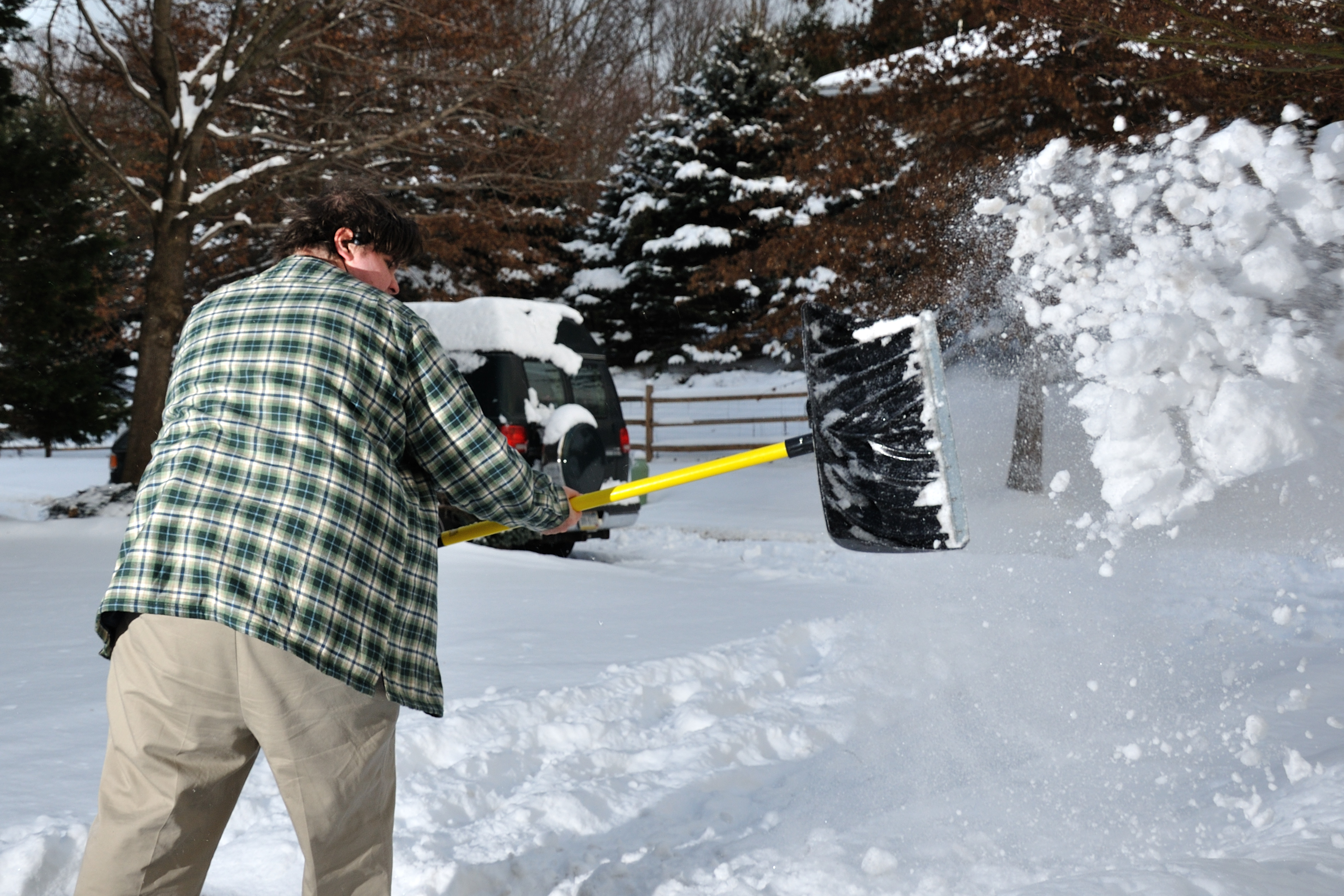When Professional Life and Personal Life Intersect
Introduction

Photo credit: Knight 725 (CC BY-NC 2.0)
“My patient shoveled my driveway” and other forays into rural health care ethics
(Student Perspectives of Interprofessional Learning in Rural and Remote Clinical Placements in Ontario, 2014)
Healthcare practice in rural and remote communities presents unique challenges with regards to ethics. The close-knit nature of small communities leads to inevitable overlap of relationships, with resultant challenges and rewards. Additionally, communities that are rural or remote may present other issues that can be ethically challenging and potentially distressing for healthcare learners and practitioners. In this session you will explore the nature of healthcare ethics in rural and remote communities, as well as strategies to manage potential issues. You will also have the opportunity to review your learning from all of the sessions in this module.
Main Topics
- The blurring of boundaries between professional life and personal life in rural and remote communities: challenges and rewards
- Managing issues related to overlapping professional and personal lives
- The humanity of practice in northern rural and remote communities: being prepared for and managing potential emotional responses to difficult situations
- Those who have gone before: experiences of other learners and their advice for a successful learning experience in a rural community
- Personal expectations and preparing for a rich rural or remote experience
- Evaluation activities related to your learning throughout the module
Intended Learning Outcomes
- Identify the challenges and rewards of overlapping professional and personal lives in rural and remote communities
- Explore strategies for managing issues arising from intertwined professional and personal lives
- Develop an understanding of potential unique situations in rural and remote northern communities that may be difficult at an emotional level, and identify strategies for managing this in a healthy way
- Describe the experiences of learners and practitioners in rural and remote northern communities and explore your own responses to their advice.
- Review your expectations, hopes, and concerns regarding your upcoming learning or practice experience in a rural/remote northern community. Explore strategies you can implement to make the most of this unique and potentially rich experience.
- Demonstrate your learning by identifying and linking major concepts explored in the module.
Readings and Resources
 Photo credit: J. Stephen Conn (CC BY-NC 2.0)
Photo credit: J. Stephen Conn (CC BY-NC 2.0)
1. Tryssenaar J, Berry S, Briggs M, Winn C, Shimmell L, Chisholm B, Snippe-Juurakko E, Wojkowski S. Student perspectives of interprofessional learning in rural and remote clinical placements in Northern Ontario.1
- Excerpts related to intersecting personal and professional lives. Learners share stories of how the blurred lines between personal and professional lives can present both challenges and opportunities.
2. Ethical Concerns About Dual Relationships in Small and Rural Communities: A Review2
- This article regarding overlapping personal and professional lives of mental health workers in small communities raises issues relevant to other healthcare professionals.
3. Graber, M. The overlapping roles of the rural doctor.3
4. Schank, J., Helbok, C., Haldeman, D., & Gallardo, M. Challenges and benefits of ethical small-community practice.4
- This article discusses ethical issues and boundary challenges of psychologists practicing in small communities.
5. Health Care Ethics in the Rural Context
- This American PowerPoint presentation provides a brief overview of rural health care ethics.5
6. Canadian Nurses Association. Ethical distress in health care environments6
- This article from the Canadian Nurses Association is relevant for many health care professions.
7. Tryssenaar J, Berry S, Briggs M, Winn C, Shimmell L, Chisholm B, Snippe-Juurakko E, Wojkowski S. Student perspectives of interprofessional learning in rural and remote clinical placements in Northern Ontario.7 (Excerpts related to managing difficult emotional situations)
- Learners share stories where issues beyond their control impact clients or community members in ways that can be distressing.
8. 1000 Conversations. Brief History of Residential Schools.8
- The residential school system has impacted many Aboriginal communities in ways that contribute to issues related to health and wellness. Developing an awareness of the injustices of this system and its ongoing impact on individuals and communities is important in understanding some of the morally distressing issues that clinicians may encounter in their practice.
9. Tryssenaar J, Berry S, Briggs M, Winn C, Shimmell L, Chisholm B, Snippe-Juurakko E, Wojkowski S. Student perspectives of interprofessional learning in rural and remote clinical placements in Northern Ontario.9
- Those Who Have Gone Before: Advice from Clinical Learners in Rural Northern Ontario
Learning Activities
Activity 1:
In “Student Perspectives of Interprofessional Learning in Rural and Remote Clinical Placements in Ontario: Excerpts related to intersecting personal and professional lives,” students share personal experiences which raise potential ethical concerns.
- Identify the various ethical issues arising from these stories.
- What are possible benefits that can arise from intersecting personal and professional lives?
- What are the implications that might arise from overlapping personal and professional lives?
Share your reflections on the “Session 4 – Learning Activity 1” discussion board.
Activity 2:
Resources 2-5 from this week explore the unique ethical issues that can arise in healthcare practice in rural and remote communities. After reviewing these resources, discuss the following:
- Do you think ethical issues are different in rural and remote communities in contrast with urban centres? Why or why not?
- How are the issues raised in the resources relevant to your profession?
- If you are a regulated healthcare professional, does your regulatory body have resources that would help guide decision-making around ethical issues in rural and remote northern practice?
Post your responses to the “Session 4 – Learning Activity 2” discussion board.
Activity 3:
Resources 6-8 address the issue of “moral distress” in health care practice:
- Self-reflection (you may choose to take personal notes but do not need to post for this activity): Think about when you have encountered issues in healthcare that have been morally distressing. How did you deal with them? What sorts of issues do you think you might encounter in your upcoming clinical learning/practice experience that could be morally distressing? Reflect on your personal sources of support in stressful times.
- With the client’s wellbeing in mind, are there things learners/practitioners can do to manage a morally distressing situation?
- It is important for healthcare learners and practitioners to find sources of personal support in morally distressing situations in order to maintain a sense of wellbeing and prevent burnout. What are possible sources of personal support that learners/practitioners can access or implement in morally distressing situations?
Share some of your strategies for B) and C) with your colleagues on the “Session 4 – Learning Activity 3” discussion board.
The following three activities are meant to help you reflect on what you have learned throughout the module “Health Care Practice in Rural and Remote Communities”. Learning activities 5 and 6 are activities that are used to evaluate your learning in this module.
Activity 4:
Review the expectations/hopes/concerns you identified regarding your upcoming learning/practice experience from Sessions 1 and 2, as well as the document “Those Who Have Gone Before: Advice from Clinical Learners in Rural Northern Ontario.” Have your expectations, hopes, and concerns regarding your learning or practice experience changed at all from your original ideas? Post your responses on the “Session 4 – Learning Activity 4” discussion board.
Information for Evaluation Activities:
Below is a list of some of the major concepts that have been explored in this module as they relate to health care practice in rural and remote communities in Northern Ontario:
- Geographic diversity
- Cultural diversity
- Social determinants of health
- Population health status
- Challenges/benefits of living and working in northern rural and remote communities
- Factors influencing healthcare professionals’ decisions to practice in rural and remote communities
- Generalist practice
- Rural and remote generalist practice as a specialty
- Sole practice
- Interprofessional collaboration and/or learning
- Technology as support for practice/learning/care
- Intersecting personal and professional lives
- Managing difficult emotional situations
Activity 5:
Evaluation Activity - Putting it all together: Based on what you’ve learned in the “Health Care Practice in Rural and Remote Communities” module, complete one of the following creative activities so that it captures one or more unique features of learning or practicing in a northern rural or remote community (see list above of major concepts for ideas). The purpose of this activity is not to produce a great piece of art, but rather to challenge yourself in a fun way to express what you perceive to be a part of the essence of northern rural and remote practice, and to share that with your colleagues.
- Write a 50 word fictional story (including the title).
- Create a movie title and brief plot (up to 75 words).
- Create a piece of visual art in any format.
- Write a poem or song.
- Develop a visual metaphor.
- Complete a different creative endeavor of your choice that relates to the learning activity.
Share on the “Session 4 – Learning Activity 5” discussion board. Comment on the work of at least 3 of your colleagues to provide feedback or ask questions, keeping in mind the purpose of the activity as described above. Ensure amongst your colleagues that each submission has at least two comments from fellow learners.
Activity 6:
Evaluation Activity: Choose one activity from the three activities listed below to demonstrate your understanding of rural and remote health care practice. Submit your completed evaluation activity to your instructor.
Option #1 - Story telling: Choose a community in rural or remote Northern Ontario and create a story about a client’s possible health care experience. Incorporate at least 4 of the major concepts from this course. (1000-1300 words)
Option #2 - Future telling: It is a number of years from now and you have been working in a northern rural or northern remote region for at least one year. Describe a day in your practice life that incorporates at least 4 of the major concepts from this course. (1000-1300 words)
Option #3 - Create a Concept Map: Create a concept map of major concepts from the module using the online tool identified by your instructor. Write an accompanying narrative (800-1200 words) examining your learning by elaborating on links between concepts, and what actions you’ll take as a result of your learning and/or to further support your learning.
Information for Concept Map Activity: Concept maps are learning tools that help you organize information and identify the inter‐relationships between concepts. Because a concept map reflects your own ideas and way of thinking, everyone’s concept maps will be very individual ‐ both in content and presentation.
Your concept map should contain the elements outlined in the following approach:
- Use the central theme of Northern Rural and Remote Practice as your center point or main concept.
- Select key concepts of interest to you from the module (a minimum of 8-10). These should relate to some of the major concepts identified above, but they may be single words, definitions, ideas or phrases. These concepts will form the basis of your map. Organize these on your map in such a way that you can ‘link’ the concepts to each other and/or to the central theme, use lines or arrows and additional words or simple phrases explaining the link.
- Use a system/legend to clarify the content (for example, different fonts, shapes or colors around primary and secondary concepts). See examples in the online tools.
You have now completed the Rural and Remote Practice module - congratulations!
Return to home

Photo credit: Justin Meissen (CC BY-SA 2.0)
References
- Tryssenaar J, Berry S, Briggs M, Winn C, Shimmell L, Chisholm B, Snippe-Juurakko E, Wojkowski S. (2014). Student perspectives of interprofessional learning in rural and remote clinical placements in Northern Ontario. Unpublished material, McMaster University, Hamilton Ontario Canada.
- Ethical Concerns About Dual Relationships in Small and Rural Communities: A Review. Retrieved June 11, 2015 from: <http://jeps.efpsa.org/articles/abstract/10.5334/jeps.az/
- Graber, M. (2011). The overlapping roles of the rural doctor. AMA Journal of Ethics, 13(5), pp 273-277. Retrieved June 11, 2015 from: http://journalofethics.ama-assn.org/2011/05/ccas1-1105.html
- Schank, J., Helbok, C., Haldeman, D., & Gallardo, M. (2010). Challenges and benefits of ethical small-community practice. Professional Psychology: Research and Practice, 41(6), pp. 502-510. DOI: 10.1037/a0021689. http://aliento.pepperdine.edu/content/schank-gallardo-focus-on-ethics-2010.pdf
- Health Care Ethics in the Rural Context: This American PowerPoint presentation provides a brief overview of rural health care ethics.
- Canadian Nurses Association. (2003). Ethical distress in health care environments. Ethics in Practice for Registered Nurses, October 2003. Retrieved June 11, 2015 from: https://www.cna-aiic.ca/~/media/cna/page-content/pdf-en/ethics_pract_ethical_distress_oct_2003_e.pdf?la=en
- Tryssenaar J, Berry S, Briggs M, Winn C, Shimmell L, Chisholm B, Snippe-Juurakko E, Wojkowski S. (2014). Student perspectives of interprofessional learning in rural and remote clinical placements in Northern Ontario. Unpublished material, McMaster University, Hamilton Ontario Canada.
- 1000 Conversations. (2015). Brief History of Residential Schools. Retrieved June 11, 2015 from http://1000conversations.ca/?page_id=48. communities is important in understanding some of the morally distressing issues that clinicians may encounter in their practice.
- Tryssenaar J, Berry S, Briggs M, Winn C, Shimmell L, Chisholm B, Snippe-Juurakko E, Wojkowski S. (2014). Student perspectives of interprofessional learning in rural and remote clinical placements in Northern Ontario. Unpublished material, McMaster University, Hamilton Ontario Canada.